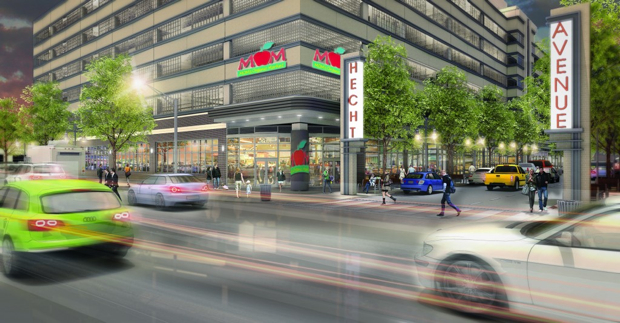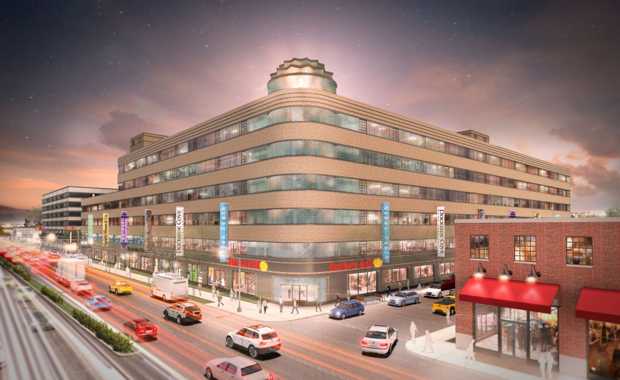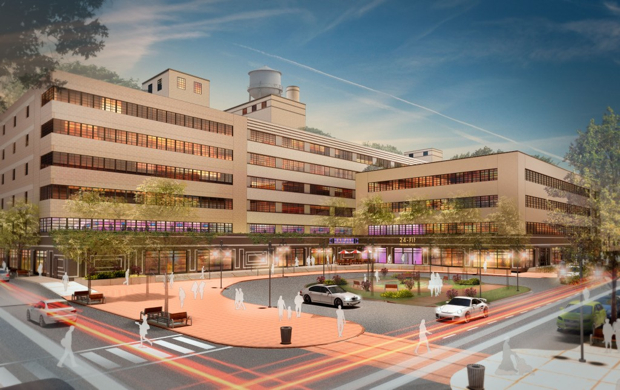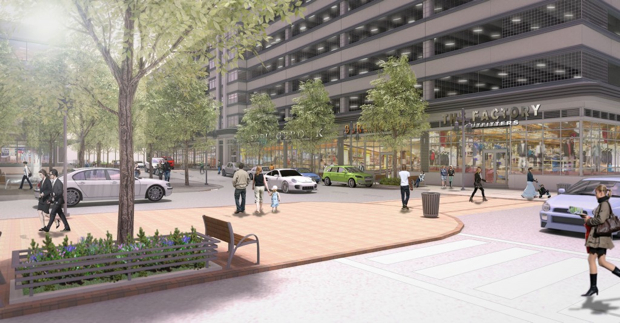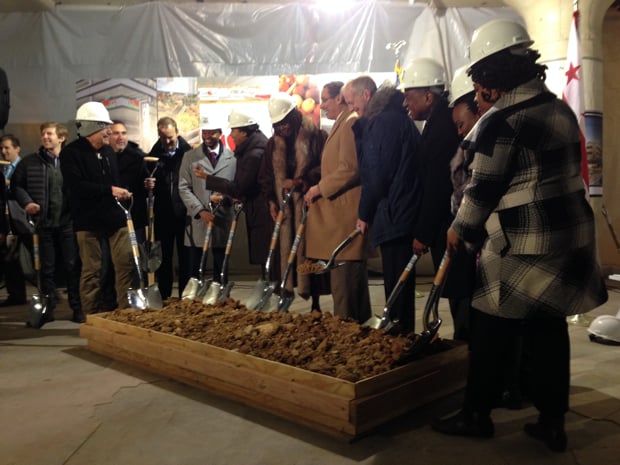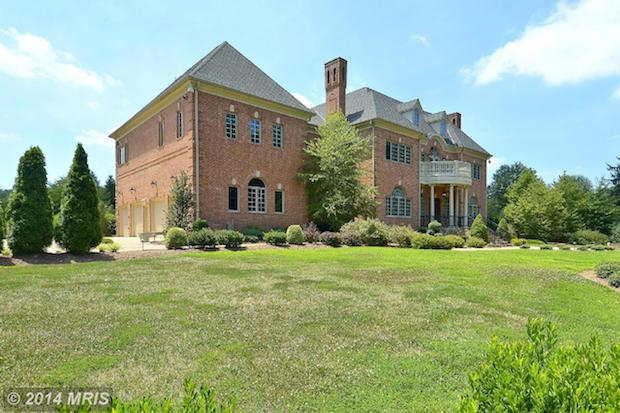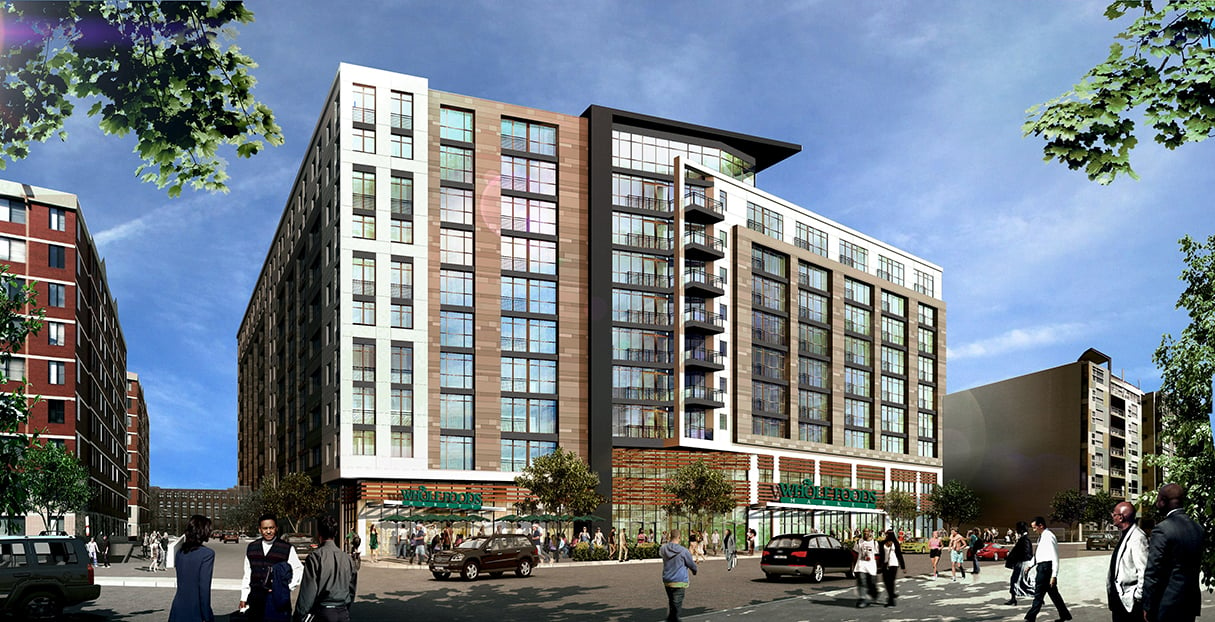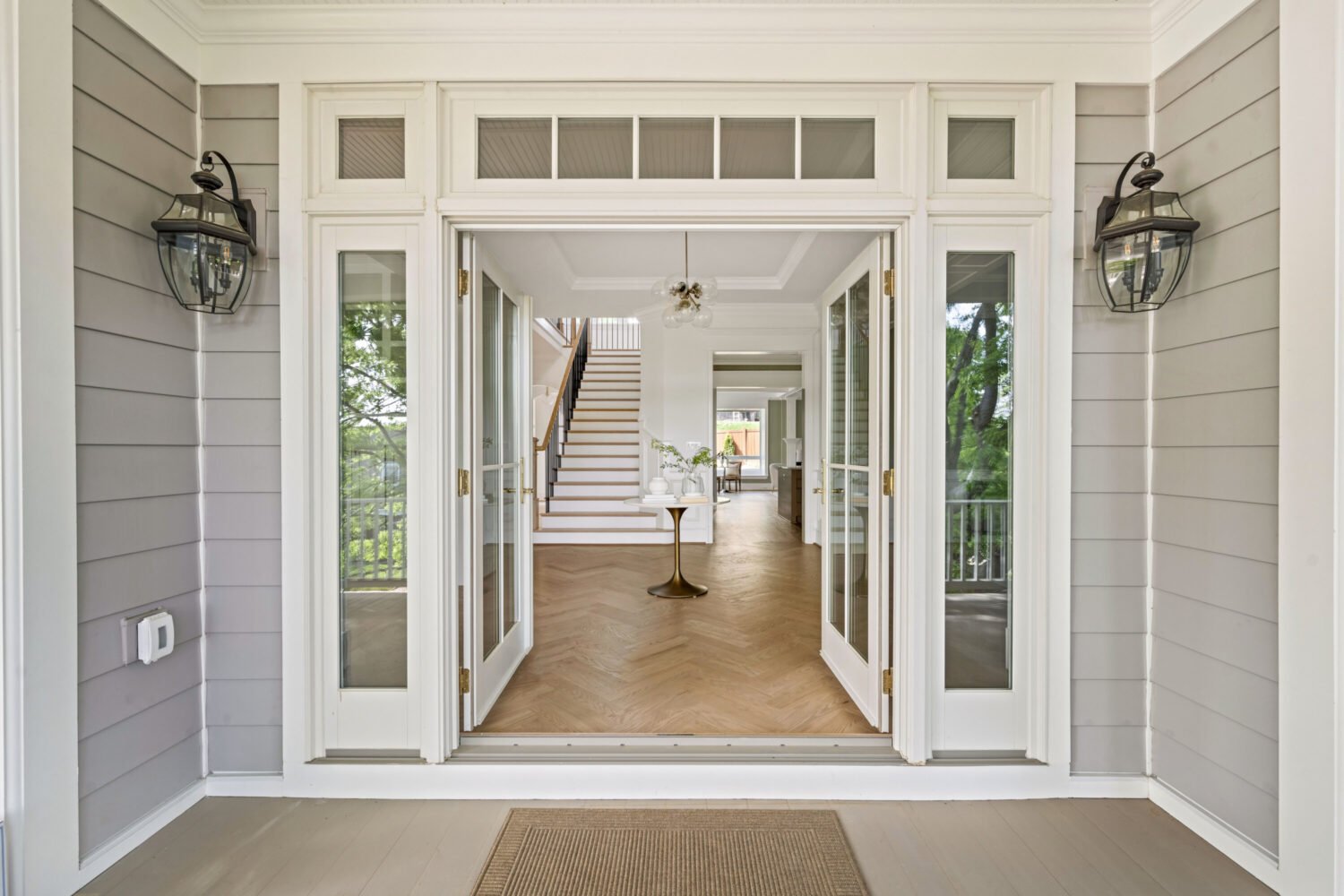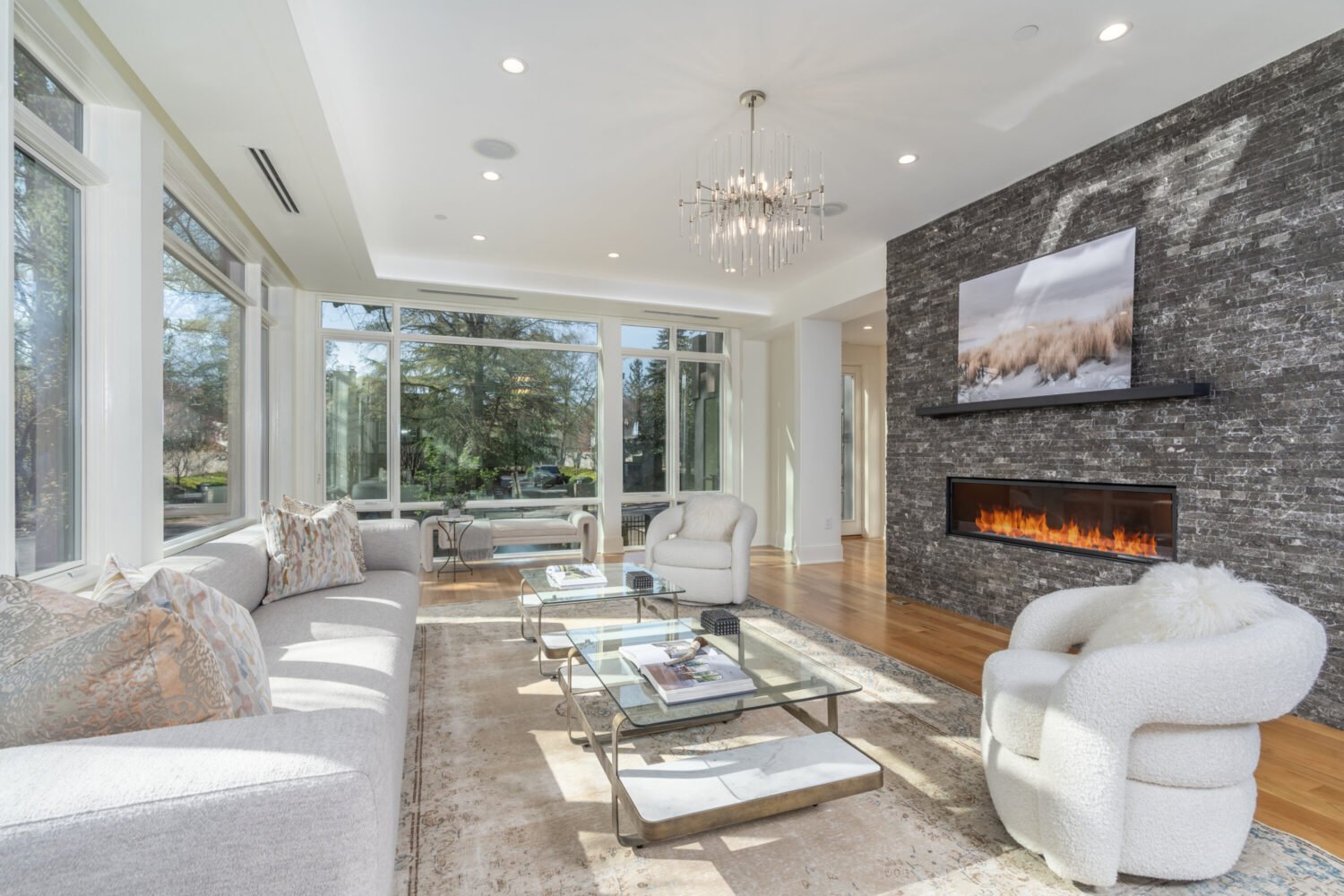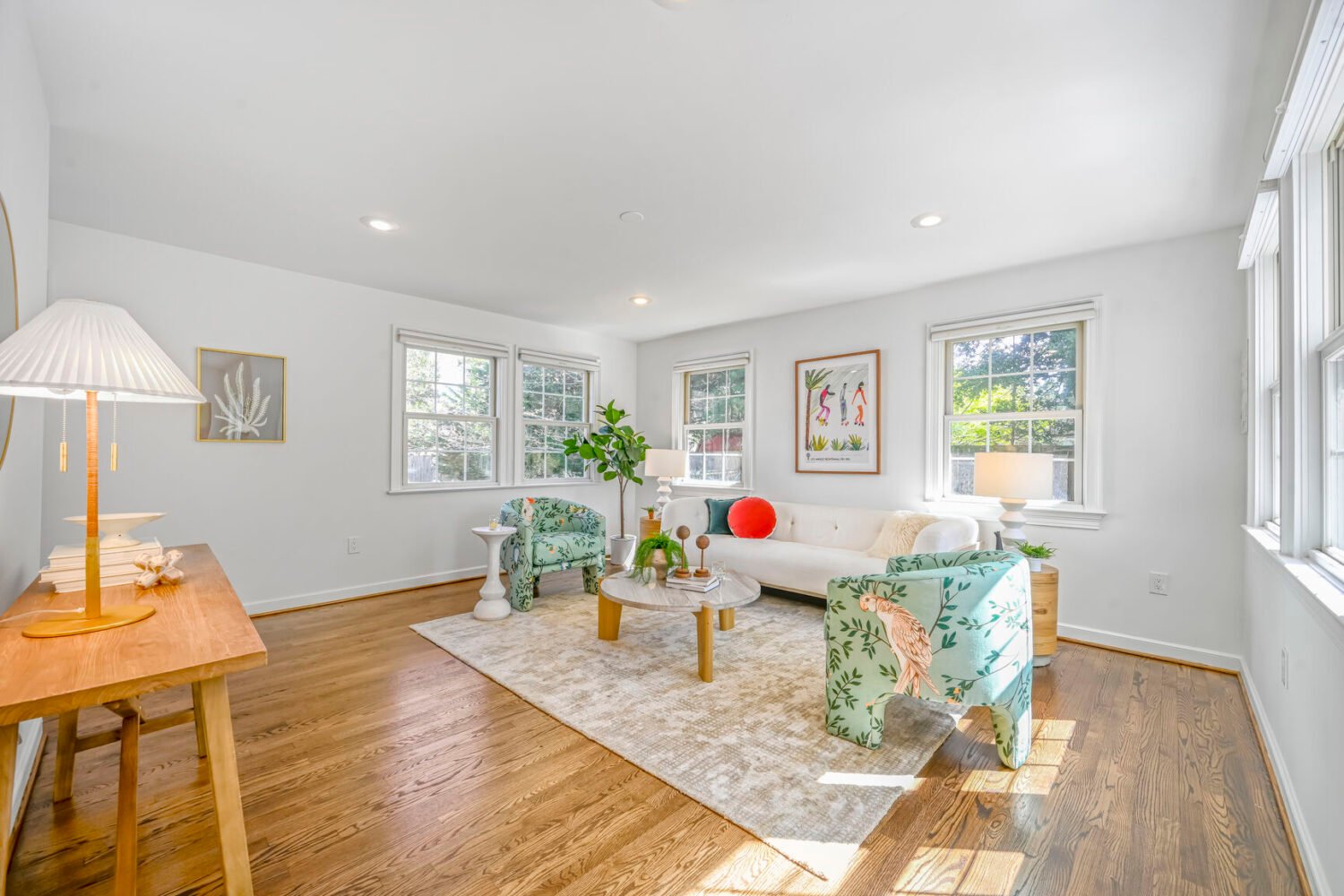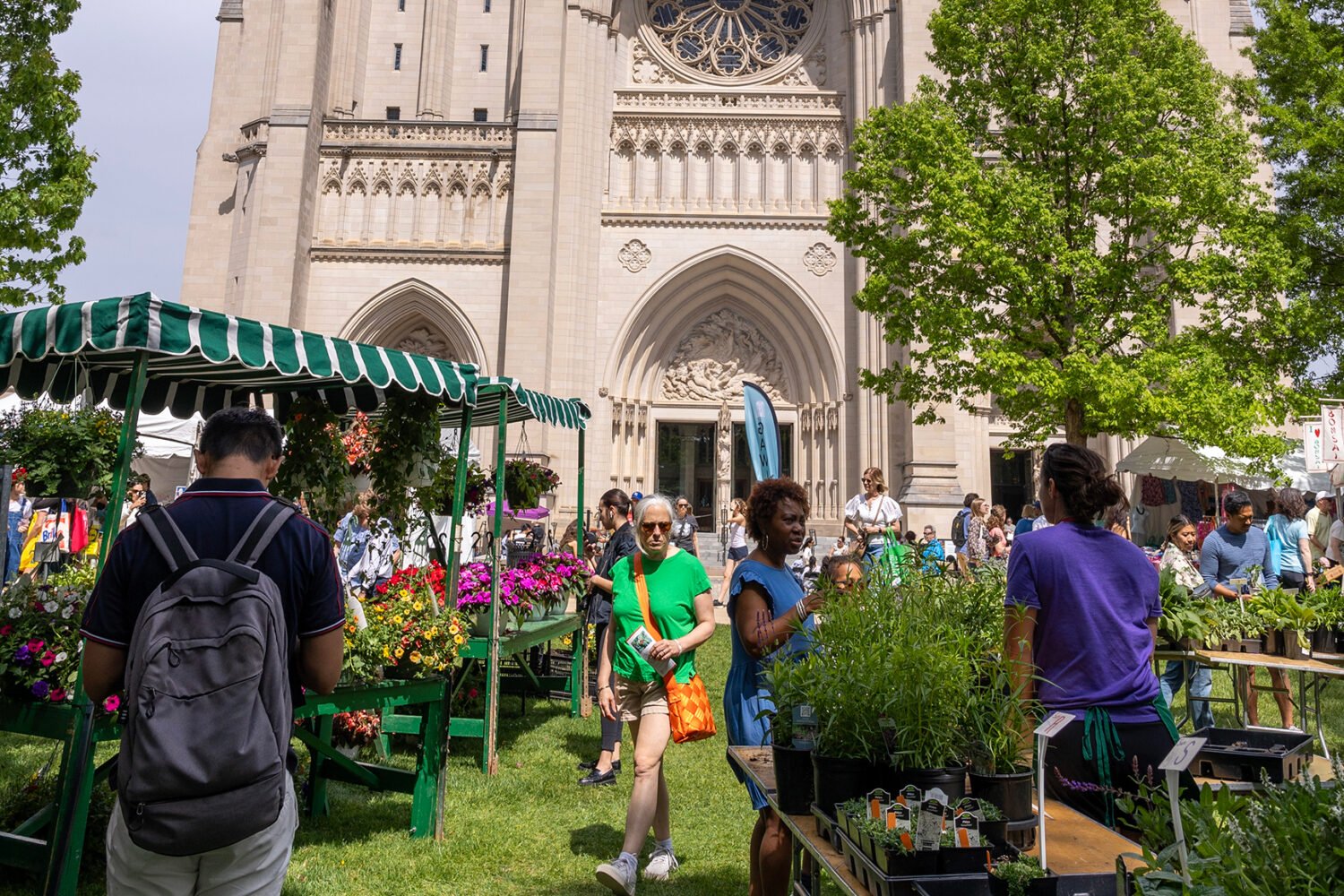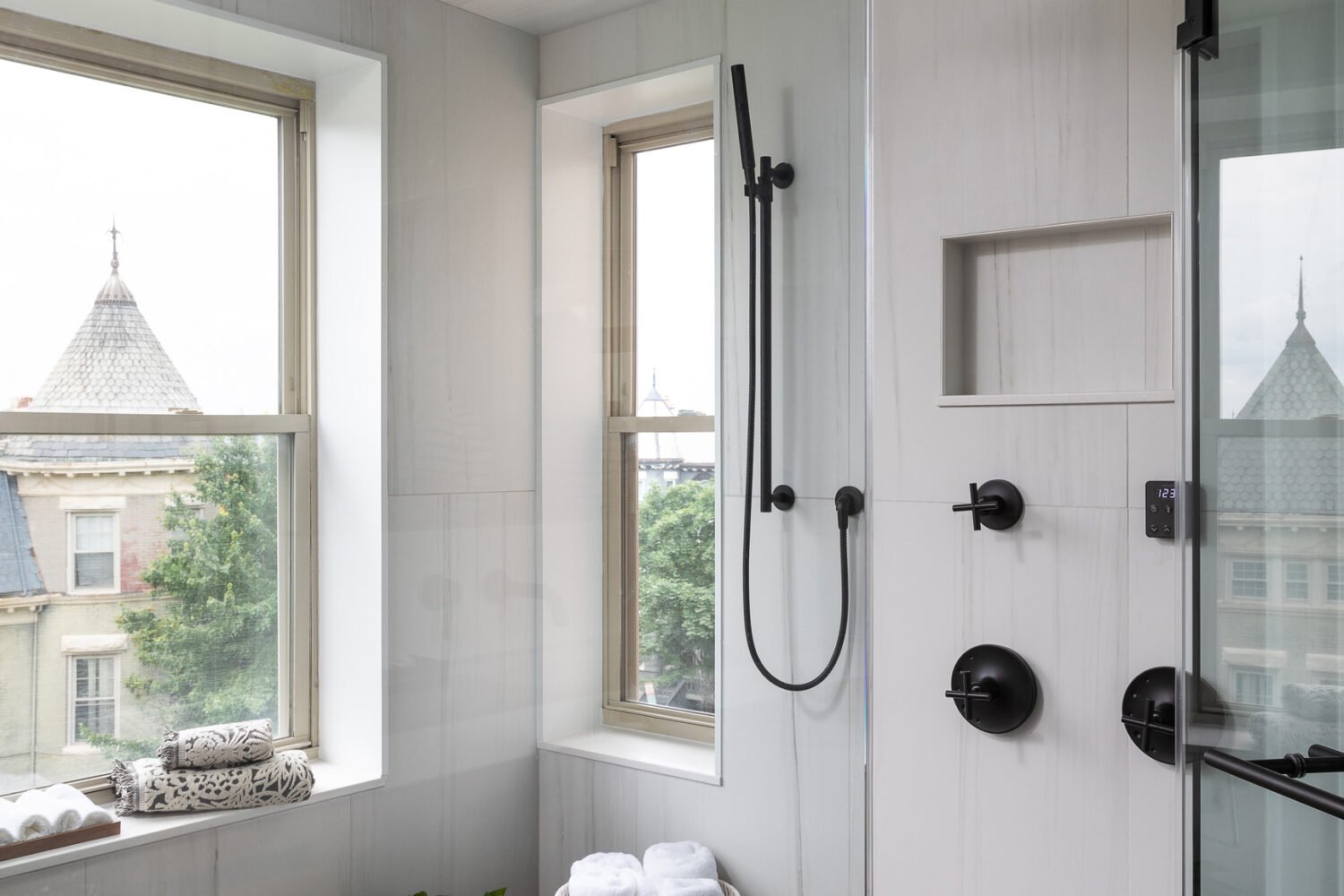Standing in a frosty construction site just off New York Avenue, Northeast, developer Doug Jemal and DC elected officials (including a few mayoral candidates who weren’t on the program) held a ceremonial “groundbreaking”—in reality, a smattering of dignitaries digging into a box of dirt—for the redevelopment of the Hecht Company Warehouse, a Streamline Moderne landmark that occupies two blocks of a long-blighted part of DC.
“This is a gateway,” Mayor Vince Gray said, before turning the podium over to one of his rivals for in the mayoral election, Council member Muriel Bowser. Two other mayoral contenders, Council members Jack Evans and Vincent Orange, were not scheduled to speak, but got their turns anyway. Nobody mentioned the election, but Jemal, as one of the city’s leading developers, has ties to all four candidates who were present, having given $2,000 to Evans’s, Bowser’s, and Orange’s campaigns, as well as donating to Gray’s 2010 run.
The Hecht warehouse has been empty since 2006, when Macy’s bought the last remnants of the old department store chain and shut it down. Jemal’s company, Douglas Development, bought the property for $20 million in 2011 with the idea of bringing one of the mixed-use developments that are an icon of present-day DC to Ivy City, one of Washington’s poorest neighborhoods.
Douglas’s $200 million project is converting the 463,000-square-foot complex of apartments and retail—potentially a tough sell in largely industrial area cut off from most public transportation. The ground floor will be anchored by a Mom’s Organic Market, bringing fresher food to one of the city’s biggest food deserts. Jemal also announced a second anchor tenant with Planet Fitness, a Baltimore-based chain of low-cost gyms, inking a deal for 20,000 square feet.
Hecht’s plans to include ground-floor retail when it built the warehouse eight decades ago were never realized, Jemal said in his remarks. But with an eye toward historic preservation, Jemal said the redevelopment project offers the chance to finally put in those amenities.
“We’re not that effing smart,” he said. “Let’s put back what they intended to do in 1937.”
The 350 apartments Douglas plans to put inside the Hecht’s building will be far more expensive than the neighborhood’s going rate. Rents on equivalent units in nearby NoMa are higher, but the Hecht’s location is less inviting for car-free denizens, with the nearest Metro station more than a mile away. Even footpaths in the neighborhood are less than hospitable. (Douglas is building a 900-space parking garage next door.)
Here are a few renderings of the redeveloped Hecht’s building:
